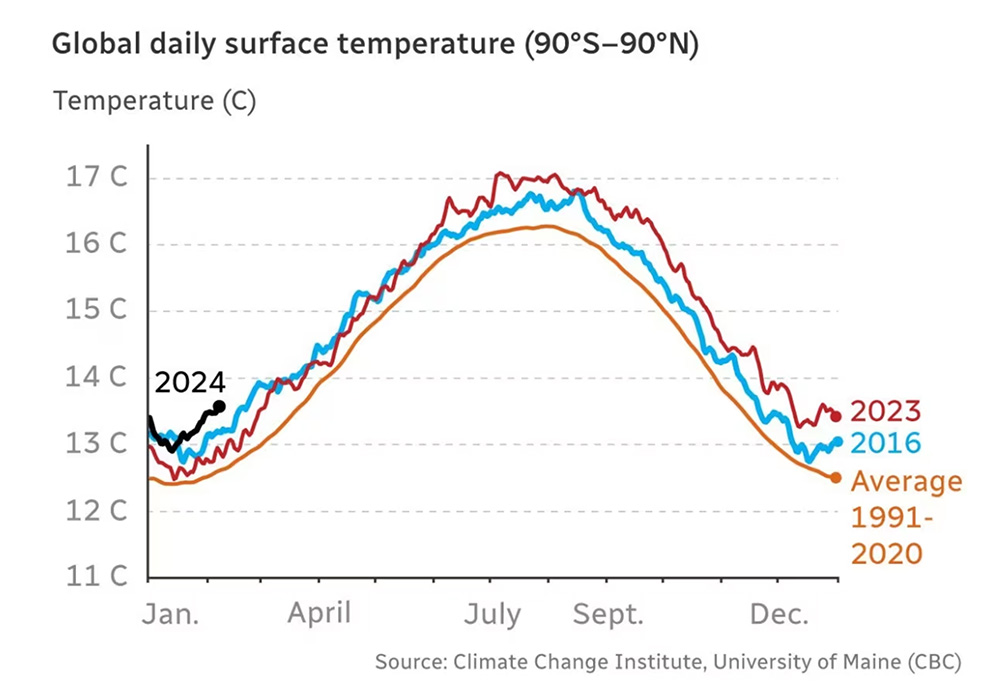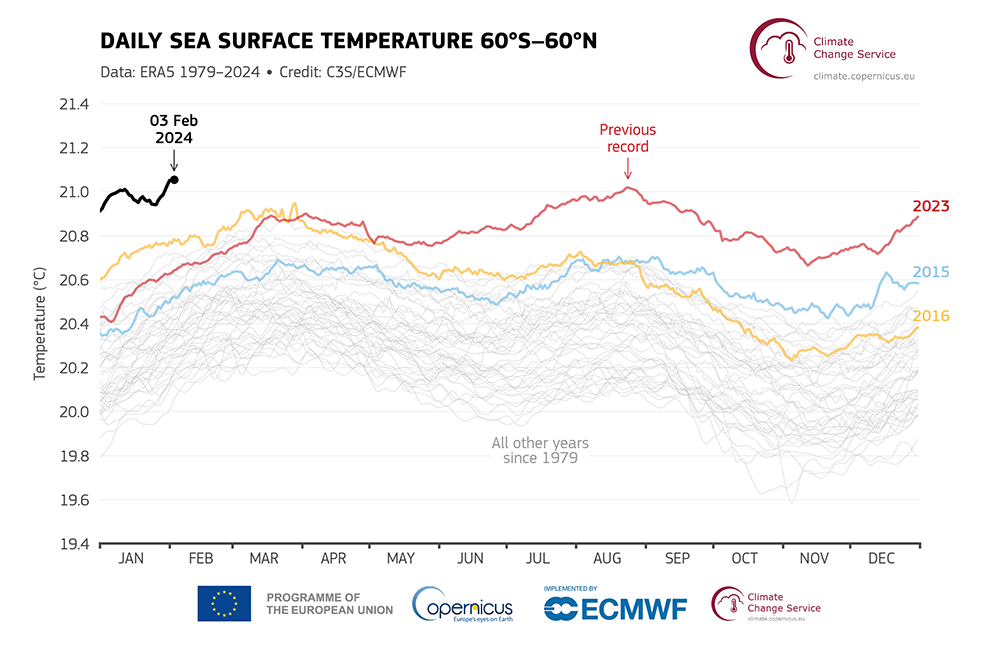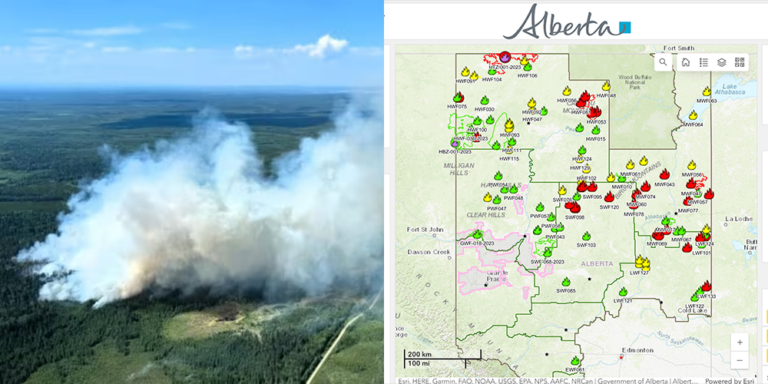Last summer was insane, with record temperatures across Alberta, a record number of wildfires and record-breaking hours of smoke. Combined with a prolonged drought that devastated crops, 2023 was a tough one for Alberta.
If you were hoping for a reprieve in 2024, your hopes might be dashed.
According to experts, 2024 will potentially surpass the record-breaking heat we all suffered through in 2023.
Last year, the planet recorded its hottest year, with temperatures averaging 1.48°C warmer than the pre-industrial average.
Calgary and Edmonton are a long way from the Pacific Ocean, but warming water west of the Rockies impacts us.
This surge in our temperature was driven by unprecedented ocean warmth and the occurrence of El Niño, a natural phenomenon known to spike up global temperatures.
Unfortunately, the El Niño effect usually hits harder in the second year, suggesting that 2024 could be hotter than last year.
And the predictions are proving true.
January 2024 has already set a new record for the warmest January on record for the World as a whole, further indicating that we are on a trajectory towards a hot year.


Hot Oceans Mean Hot Lands
Ocean temperatures have been a critical factor in this warming trend, with the ocean breaking records for warmest temperatures ever recorded last month.
The absorption of heat by the oceans plays a crucial role in setting new temperature records, both for the ocean and for the global surface air temperature.
These elevated sea surface temperatures are observed across vast expanses of the ocean, driving the overall increase in global temperatures.
Breaking through the 1.5°C warming threshold, even for a short time, underscores the urgency of the situation.
This 1.5°C warming milestone, referenced in the Paris Agreement, represents a critical point beyond which climate impacts become increasingly difficult to manage.
While temporarily crossing this threshold does not spell immediate disaster, it highlights the need to intensify efforts to reduce greenhouse gas emissions and mitigate the changing climate.
The Paris target was an insurance metric. Like the age of 60 on a life insurance policy, it just means that once it is reached, many more important variables come into play that can lead to bad outcomes.
That’s why it’s worth noting that some leading climate scientists recently warned that the climate may change more quickly than expected in the future.


A Wake-Up Call?
Countries around the world are changing rules to reduce carbon pollution and promote cleaner practices.
They are fast-tracking renewable energy sources like wind and solar power, making things work better with less energy, and setting up a system that makes it cost money to pollute, which will help lower the amount of carbon pollution.
Additionally, international cooperation and agreements, such as the Paris Agreement, aim to unite countries in a collective effort to limit global warming and its impacts.
Despite these efforts, the challenge remains formidable.
The transition from El Niño to neutral conditions, and possibly the cooling cyclical ocean of La Niña, may offer temporary relief from extreme temperatures by the end of 2024.
But La Niña, often causes an opposite problem; one of cooler but extremely wet conditions, likely resulting in widespread flooding.
More Extremes?
Many experts say that our changing weather is about more than just things getting hotter on average. It also means bigger variations in how hot or cold it can get. For example, in Alberta, we’ve seen this with not only the hottest temperatures ever, but also the recent recorded-breaking cold we suffered through in mid-January.


Experts also point out that rain and snowfall events will be less moderate and more extreme with a changing climate; alternating between prolonged droughts and periods of extreme precipitation.
Human-induced global warming continues to drive temperature records higher with more and more extreme weather events.
The fight against the changing climate demands not only immediate action but sustained efforts over the long term to adapt to the changing climate and reduce the amount of heat-trapping pollution we release.
While the rest of the world aims to transition from carbon-producing fossil fuels, Danielle Smith’s Alberta government is looking to double oil and gas production.
Huh?
As we move forward, the actions taken by nations and governments today will be crucial in shaping the future of our planet and our ability to live sustainably within its bounds.
Is Alberta on track to make things better or worse?
Get out your sun screen, gas masks and store up your water – we’re in for a wild ride!






